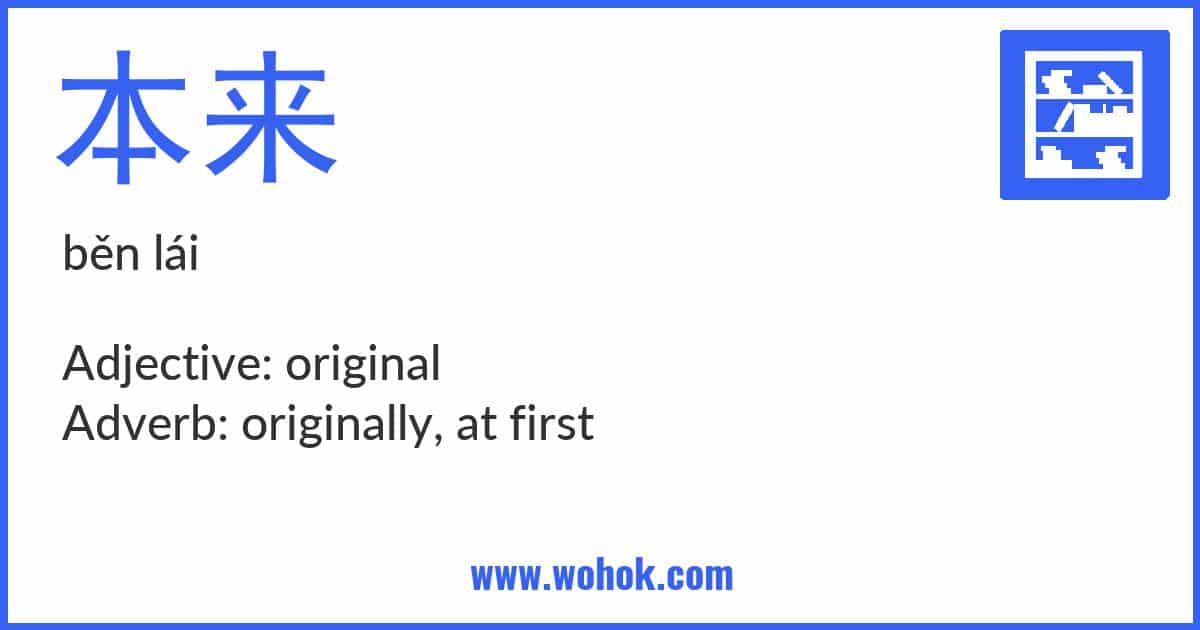The Chinese word 本来 means “originally” or “inherently”. It is used to describe something that is true or should be true based on its nature or original state. For example, if someone says “我本来不喜欢吃辣的”, it means “I originally didn’t like spicy food”. Another example is “这个问题本来很简单”, meaning “This problem was originally very simple”. The word 本来 is often used to contrast with a current or changed state, emphasizing the idea that something has deviated from its original or natural state.
Translation
Adjective: original
Adverb: originally, at first
Pronunciation
Example Sentences
| Chinese | Pinyin | Engish |
|---|---|---|
| 他本来想去旅游,但是因为疫情取消了 | tā běnlái xiǎng qù lǚyóu, dànshì yīnwèi yìqíng qǔxiāole | He originally planned to travel, but it was canceled due to the pandemic |
| 这个房子本来很漂亮,但是现在有点旧了 | zhège fángzi běnlái hěn piàoliang, dànshì xiànzài yǒudiǎn jiùle | This house was originally very beautiful, but now it’s a bit old |
| 她本来是一名医生,但是现在做了一名作家 | tā běnlái shì yī míng yīshēng, dànshì xiànzài zuòle yī míng zuòjiā | She was originally a doctor, but now she is a writer |
| 这道数学题本来很难,但是我练习了很多次,现在很容易了 | zhè dào shùxué tí běnlái hěn nán, dànshì wǒ liànxíle hěnduō cì, xiànzài hěn róngyìle | This math problem was originally difficult, but I practiced it many times, and now it’s easy |
| 我本来不喜欢吃辣的,但是来到中国后,我开始喜欢了 | wǒ běnlái bù xǐhuān chī là de, dànshì láidào zhōngguó hòu, wǒ kāishǐ xǐhuānle | I originally didn’t like spicy food, but after coming to China, I started to like it |
HSK
本来 is part of HSK Level 4 in HSK 2.0. In the newer HSK 3.0 it is part of HSK Level 3.
Learning Card


